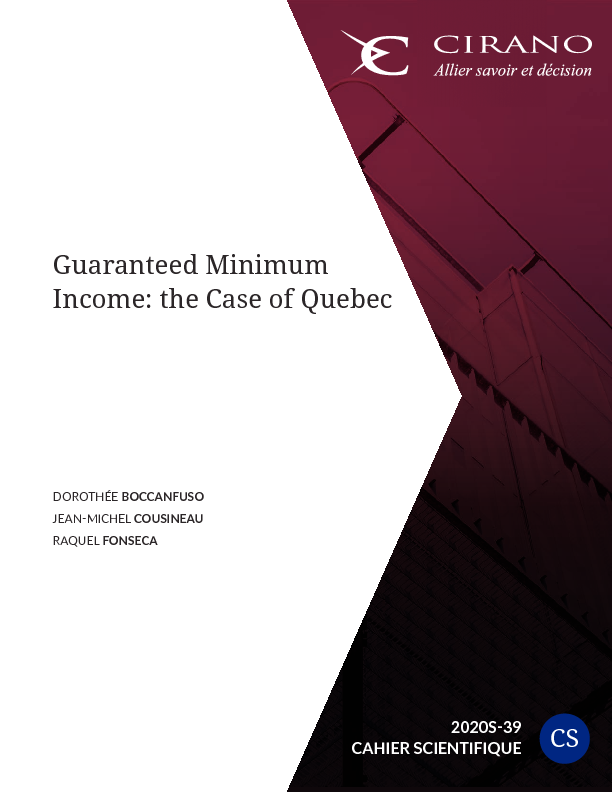Guaranteed Minimum Income: the Case of Quebec
This paper explores the concept of a guaranteed minimum income (GMI), proposes an inclusive and operational definition that helps clarify the debate, and proposes an analysis that attempts to show the implications of implementing a GMI in Quebec in its absolute form, namely the universal allowance, or in the form of a negative tax. Our results show significant problems of equity, work incentives or social acceptability. The cost would also be important for public finances. We conclude that both forms of GMI would be difficult to implement in Quebec.




